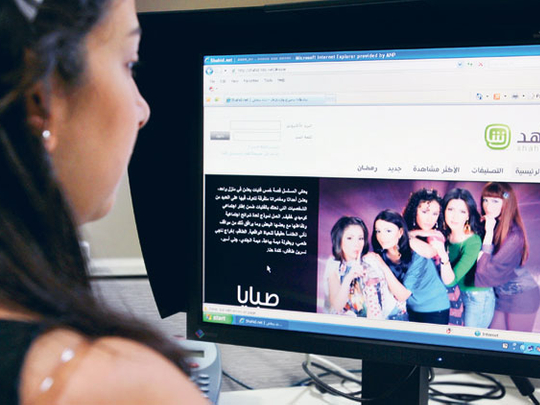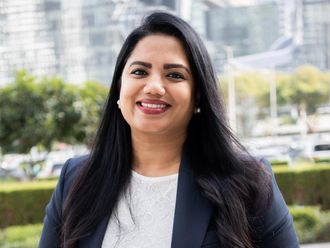
Dubai: Ramadan this year saw many viewers switching from their television sets to their computer screens. Those who had missed episodes of their favourite shows when they aired on television were catching up online.
What viewers of television series found particularly useful was that MBC Group had launched a new version of Shahid online, a video-on-demand website. The service was launched three years ago as part of MBC's website. Today, Shahid.net, which is considered the first of its kind in the region, provides programmes from MBC channels as well as other Arabic content to viewers around the world for free.
Ammar Bakkar, head of New Media at MBC Group, told Gulf News that the group decided to move forward with the website based on their experience with Shahid online and the international experience of similar platforms.
While the service is free, it's supported by advertisements. Viewers watch a video ad before the programme they are interested in loads.
"An advertising model sounds better than a subscription-based model," Bakkar said. While people are spending a lot of time in front of their computer screens, it's the advertisers' money that the company hopes to attract.
The group is encouraging advertisers to extend their television ads online by using the same 30-second spots that run on television.
Karim Fahmi, Managing Director of Tonic Media, described the platform as "a step in the right direction".
He said the content on Shahid.net is somewhat limited to what the network has to offer. "I believe the target market for such a service requires much more flexibility and content offering," Fahmi said.
Bakkar says MBC's objective is not "to compete with others, but to provide a different service online".
During Ramadan, MBC Group partnered with production companies bringing ten titles to the online platform only. "The TV rights were bought by other channels. We bough the rights for the online platform," he said.
Eyeing partnerships
Bakkar said the decision to show one episode per day is to make a start and to avoid upsetting other TV channels. "You are positioning a new product in the market and you want it to be welcomed," he said. "It won't be successful unless we have partnerships."
He said the group is considering partnerships with other content providers.
Fahmi said that online is still seen as "a luxury — a nice [thing] to have on a media plan."
"Almost all clients ‘want it' and almost all agencies ‘offer it' but very few are willing to really ‘commit' to it," he said.
While the advertising market online is not well understood, the growth is fast and huge, Bakkar said. Around the world online advertising is picking up because advertisers like the tools that measure the effect of their campaigns online and are therefore encouraged to invest more.
That's why MBC has teamed up with etisalat.
Mohammad Al Mulla, Director of Digital Media Services, told Gulf News that for a platform such as Shahid.net you need a reliable infrastructure and high-speed connectivity.
"If you lose the continuity [of the programme], then the interest of the customer and the client is gone," he said.
Etisalat provides detailed statistics on viewership, which shows how many people are actually seeing the ads. "The good thing is that the advertisers can at least know how many people have seen the ad — real figures," he said. "We give them access to the information. It's part of the service."
Al Mulla said the service has been definitely bringing back advertisers to the website. During Ramadan, Shahid.net got almost seven million media views, Bakkar said. "There's a specific advantage for video advertising online and it's the attention that people give when they are watching a certain programme," he said. "It's also getting the attention of the advertisers very nicely. You don't spend as much and you get good results."
"The main essential underlying concept is that people want more on-demand content. They want to watch what they want when they want to watch it," he said. "The statement ‘content is king' becomes more true" as we work by providing exactly that.
Business case
The interest of the viewers is there, but how it can be successful business-wise is the challenge, he said.
Rami Saad, Director of Emerging Technologies for VivaKi, formerly known as Publicis Groupe Media, told Gulf News that media offerings on-demand have become a "prerequisite in the digital world — regardless to which region we're talking about".
While MBC has been the first to provide the video on demand opportunity for brands, Saad said that this year many other significant players in the market are getting into the game.
At the same time, "it's no secret users in our region are becoming more savvy and expecting more from marketers," he said.
"The competitive advantage of being first is not long-lasting," he said. "As a result of this, there will be a shake-up that will impact MBC's video-on-demand offering and if they are to survive in the arena, they should invest behind understanding and optimising the most ideal way to engage with users beyond a companion banner and a pre-roll video."










